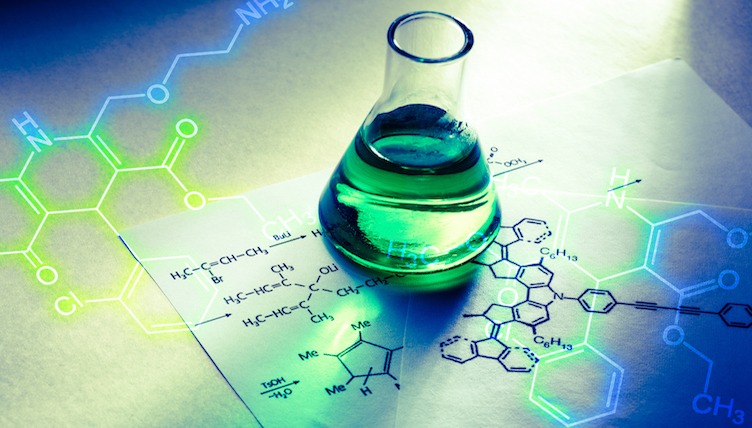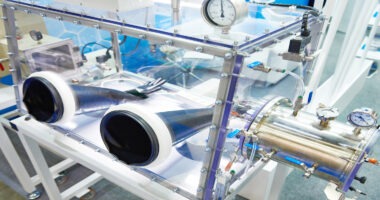What is Trending: Fine Chemicals
High-potency manufacturing and capabilities for early-stage development are among recent investment trends by contract development and manufacturing organizations/contract manufacturing organizations (CDMOs/CMOs) of intermediates and small-molecule active pharmaceutical ingredients (APIs). DCAT Value Chain Insights takes an inside look.
A roundup of recent investment activity
Some key investments, announced in 2019 to date and late 2018, are highlighted below.
Cambrex. Earlier this year (April 2019), Cambrex completed the construction of a $24-million highly potent API (HPAPI) manufacturing facility at its site in Charles City, Iowa. The 6,000-square foot facility was scheduled to commence customer projects in May 2019. In addition, in 2018, the company announced the expansion of its clinical supply and process-development capacity with the purchase of a new 45,000-square-foot building in High Point, North Carolina to expand its operations there.
Cambrex also opened a new 120-square-meter quality control (QC) laboratory at its site in Paullo, Milan, Italy. The laboratory expands on the current QC facilities that analyze and test its portfolio of APIs during development and manufacturing. The QC laboratory is now fully operational, having been authorized by the Agenzia Italiana Del Farmaco (AIFA). Earlier this month (June 2019), the company completed a new 600-square-meter facility at its site in Karlskoga, Sweden, which incorporates new laboratories for process and analytical development.
Earlier this year (January 2019), Cambrex completed its acquisition of Avista Pharma Solutions, a Durham, North Carolina-headquartered contract testing, development, and manufacturing organization, for approximately $252 million. Cambrex had announced the acquisition in late November 2018. With this acquisition, Cambrex gains capabilities for early-stage small-molecule development and testing services. Avista offers a suite of services ranging from API and drug-product development and cGMP manufacturing to stand-alone analytical, microbiology testing and solid-state sciences. The acquisition of Avista supports Cambrex as a fully integrated small-molecule contract development and manufacturing organization across the entire drug lifecycle. Avista operates four facilities located in the following: Durham, North Carolina; Longmont, Colorado; Agawam, Massachusetts; and Edinburgh, Scotland; in total comprising over 200,000 square feet of space.
Thermo Fisher. Last month (May 2019), Thermo Fisher Scientific agreed to acquire a drug-substance manufacturing site in Cork, Ireland, from GlaxoSmithKline for approximately EUR 90 million ($100.6 million). Thermo says it will expand capacity at the Cork site for the development and commercial manufacturing of complex APIs. The site has more than 400 employees. Thermo Fisher will continue to produce APIs for GSK under a multi-year supply agreement and plans to expand use of the site to develop and produce complex APIs for other customers as well. The site contains 270 cubic meters of reactor capacity, 10 production buildings, an R&D pilot plant, and lab infrastructure to support process development, scale-up and physical characterization of APIs. The transaction, which is expected to be completed by the end of 2019, is subject to customary closing conditions, including regulatory approvals. Upon completion, the site will become part of Thermo Fisher’s Pharma Services business within its Laboratory Products and Services Segment.
Lonza. Lonza is proceeding with a multi-year (2017 to 2020) CHF 100-million ($100 million) investment for highly potent active pharmaceutical ingredients (HPAPIs) and for increased automation in small-molecule manufacturing in its site in Visp, Switzerland, the largest production site in the company. The investments center on HPAPIs and “Manufacturing 4.0” to enhance automation and digitalization in its small-molecule manufacturing operations.
Seqens. Seqens is investing approximately $30 million for high-potency manufacturing for a new facility, which will consist of two units, located in the same building, a smaller one named UPP10 and a larger one named UPP30, to handle production of potent molecules from tens of kilograms to several hundreds. The new facility is in Villeneuve-La-Garenne, France, located outside of Paris. Construction started at the beginning of the year and will be completed by the fall of 2019. The modular unit is specifically designed to be flexible and allow for future investments as customer needs evolve. Initial capacity of the unit will be 10–15 tons per year.
Cerbios-Pharma. Cerbios-Pharma SA, a Lugano, Switzerland-based CDMOs of APIs, is expanding its high-potency API (HPAPI) production and conjugation capabilities. The company’s Board of Directors approved in 2018 large investments to expand the company’s capabilities and capacity for HPAPI production. The largest investment is for approximately $5.5 million for a large-scale HPAPI production line for SafeBridge Category 3 and 4 potent compounds (occupational exposure limits [OEL] < 30 ng per cubic meter). The production line will produce either HPAPIs for third parties or potent advanced intermediates. The new production line is due in the fourth quarter of 2020.
Olon. Earlier this year (February 2019), Olon, a Rodano (Milan), Italy-based CDMO of APIs and a generics supplier, acquired Capua BioServices, a Capua, Italy-based provider of CDMO services for microbial fermentation. Capua BioServices provides custom microbial process development and manufacturing for specialty small molecules, proteins, microorganisms for applications in pharmaceutical, food, feed, and other bioindustrial markets.
With the acquisition, Olon gains a site in Capua, nearby Naples, Italy with a total fermentation capacity of about 1,400 cubic meters. Capua BioServices has approximately 200 employees. Olon says that no impact on jobs is planned and that it intends to invest in the site to optimize the plant’s utilization and expand the company’s customer base. The move is part of a strategy by Olon to expand its global footprint, which includes a plan to add biologics-based manufacturing to add to its existing capabilities in small-molecule APIs and intermediates development and manufacturing.
Olon has been making moves in recent years to build its API operations. In 2016, the company acquired INFA Group, an API and fine-chemicals manufacturer headquartered in Milan, Italy. With the INFA acquisition, Olon gained two manufacturing sites in Italy (Labochim and Sifavitor) and one in Spain (Derivados QuÃmicos). In 2017, it acquired Ricerca Biosciences’ Chemical Division and separately invested more than EUR 10 million ($11.3 million) to expand API manufacturing lines in its Settimo Torinese, Italy facility, a plant used for development and production of APIs and advanced intermediates through microbial fermentation technology. In September 2018, it announced the acquisition of an API manufacturing facility in Mahad, India, a local generics chemical operations API manufacturing facility that supplies products to Sandoz, the generics arm of Novartis. That deal was scheduled to close in the first quarter of 2019.
BioVectra. BioVectra has made investments in its large-scale synthetic chemistry and analytical development capabilities. The company has completed the replacement of two 4,000-liter vessels used for small-molecule synthesis, used for compounds for late-stage clinical trials. For earlier stages of research, BioVectra operates several cGMP kilo labs, with access to reactors in the range of 30-800 liters. The company has also enhanced its analytical capabilities through the purchase of new equipment. BioVectra’s suite of analytical equipment will be bolstered with the addition of two UPLCs and five HPLCs, two charged aerosol detectors (CAD), two single quad mass detectors, a XRPD unit, an ICP-MS, a particle surface area, and a DSC/TGA instrument. Combined these investments were approximately $1.5 million.
The company also announced the launch of services for producing cannabinoid (CBD) and CBD derivatives for clinical and commercial applications. The company’s cGMP CBD manufacturing process allows for the production of hundreds of kilograms, with the ability to scale-up to multi-metric ton quantities. Production is ongoing for intermediate-scale batches, with process validation and submission of a drug master file to follow.
Almac. Almac Sciences, a member of the Almac Group, announced earlier this year (January 2019) an expansion of technology capabilities within its API services and chemical development portfolio with the implementation of continuous flow expertise at its global headquarters in Craigavon, UK, with further plans to introduce flow capacity within Arran Chemical Company, an Athlone, Ireland-based chemical company. Almac Sciences has a four-year strategy to develop flow-assisted synthesis technology (FAST) focusing on four key areas; (1) high-pressure hydrogenations, (2) high-energy chemistry, (3) oxidation and (4) photo-redox LED mediated chemistries. To support this, Almac Sciences was awarded a Knowledge Transfer Partnership from Innovate UK for the development of novel routes to chiral amines using flow technology. In addition, Arran Chemical Company, in partnership with Queen’s University, Belfast, has been successful in securing a Horizon 2020 funded program to support four PhD studentships for the next four years (beginning in 2019) in line with the FAST strategy.
Wilmington PharmaTech. Wilmington PharmaTech, a contract research/manufacturing organization with locations in Newark, Delaware and Suzhou Jiangsu, China, is expanding with plans to hire up to 139 new employees and investing $18 million in a new research and manufacturing facility in Newark, Delaware. The company currently employs 37 full-time staff in the US in several locations in Newark Delaware, including a 16,000-square-foot building, a 50,000-square-foot facility, and a 40,000-square-foot building.





